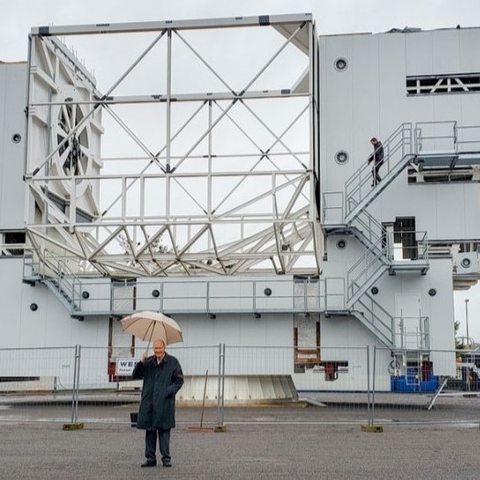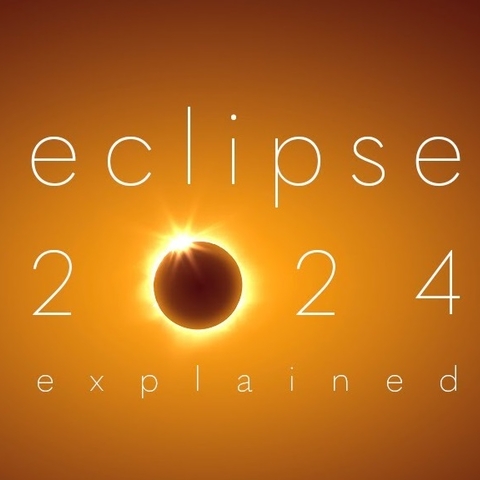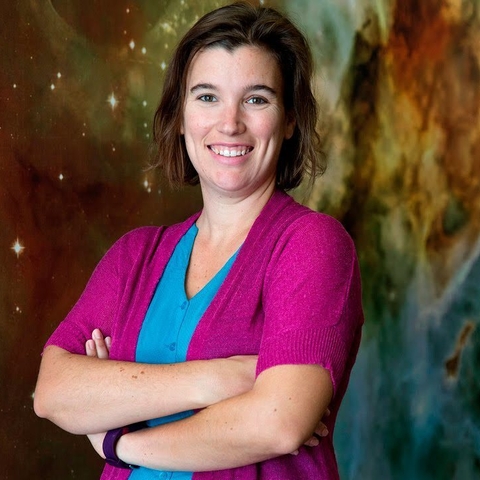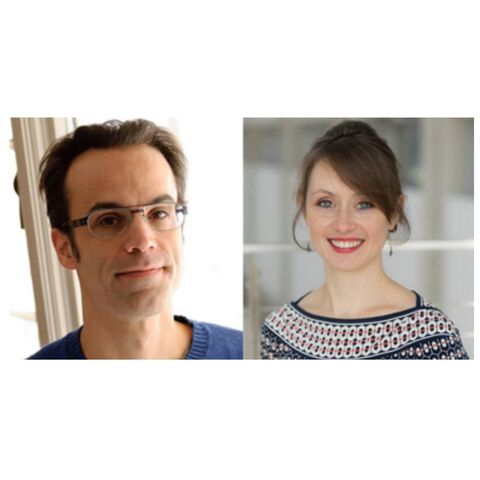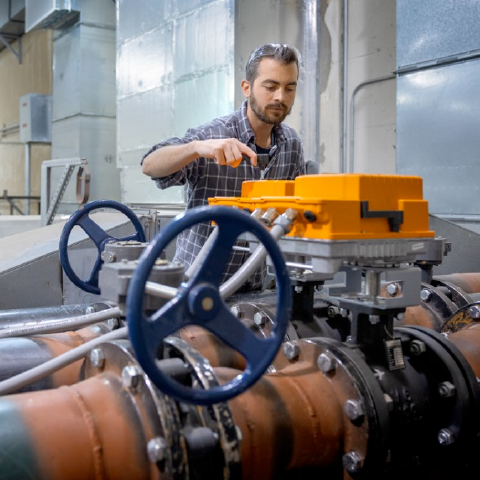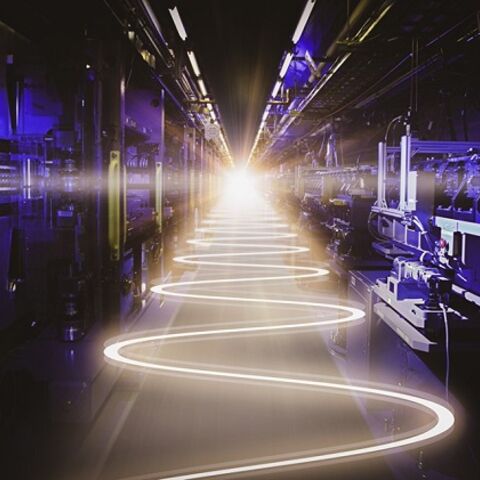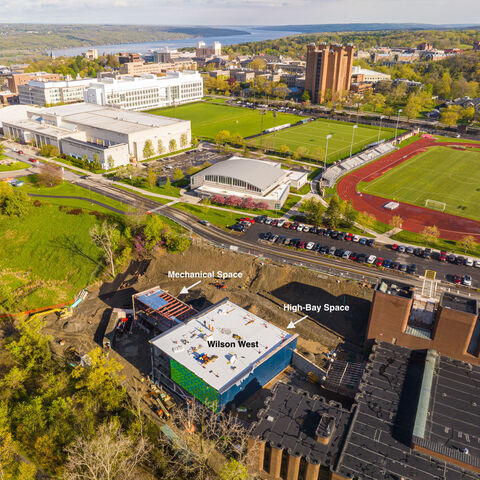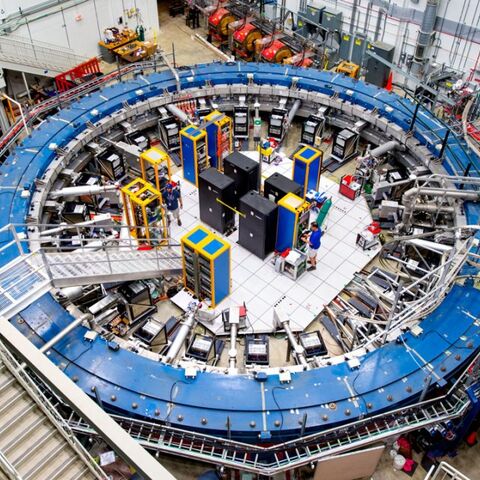News
Full listing
March 20, 2024
Abby Crites, a cosmologist at the Cornell Laboratory for Accelerator-based ScienceS & Education (CLASSE), who is building telescope cameras to peer at some of the universe’s earliest light ever created, sheds some light on how we can make the most of this celestial phenomenon happening right in our ‘backyard.’
September 25, 2023
Wilson Laboratory, which houses the Cornell High Energy Synchrotron Source, has tapped into the university’s Lake Source Cooling system, which draws cold water from the depths of Cayuga Lake to remove heat from the district chilled water loop that cools the majority of Cornell facilities.
September 18, 2023
The newly upgraded Linac Coherent Light Source (LCLS) X-ray free-electron laser (XFEL) at the Department of Energy’s SLAC National Accelerator Laboratory successfully produced its first X-rays Sept. 14, and researchers around the world are already lined up to kick off an ambitious science program.
September 14, 2023
Follow this page to see the latest images of the New Experimental Hall construction.

